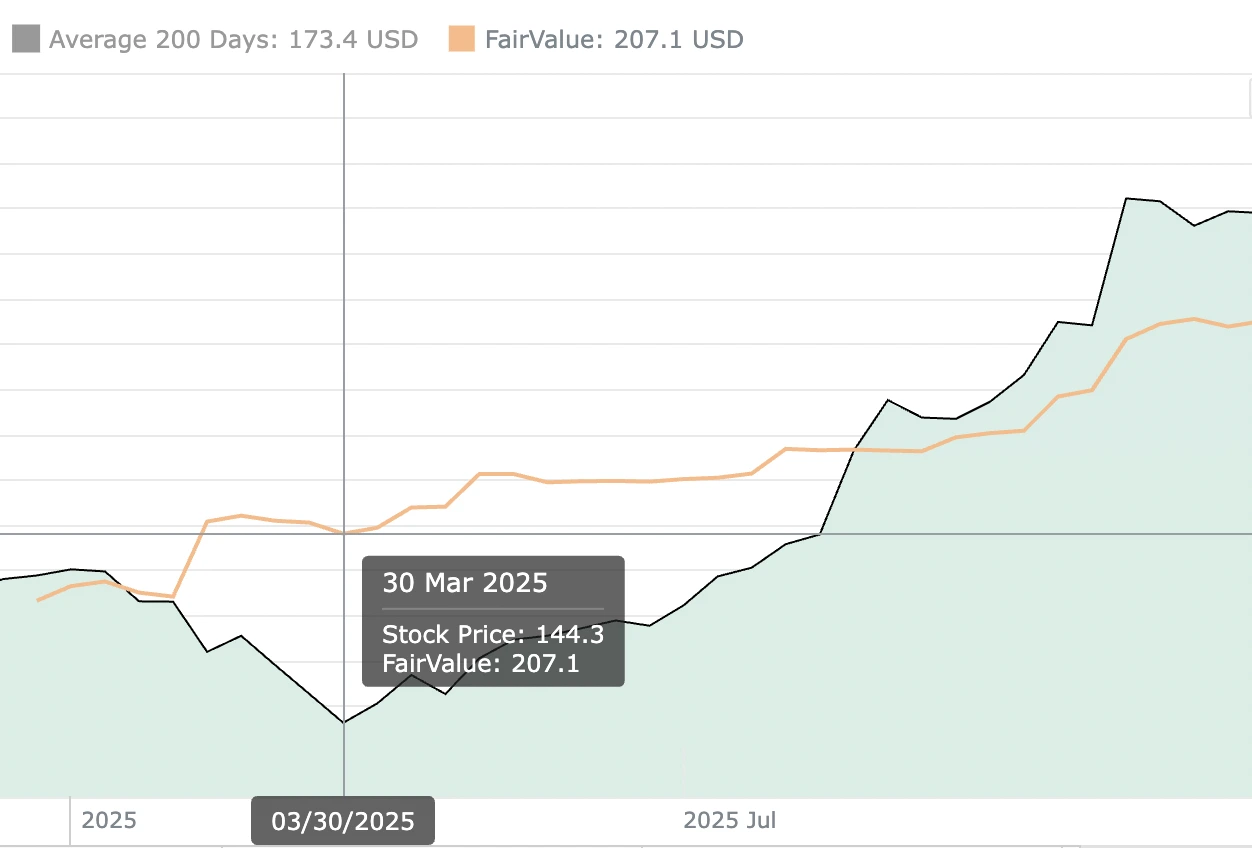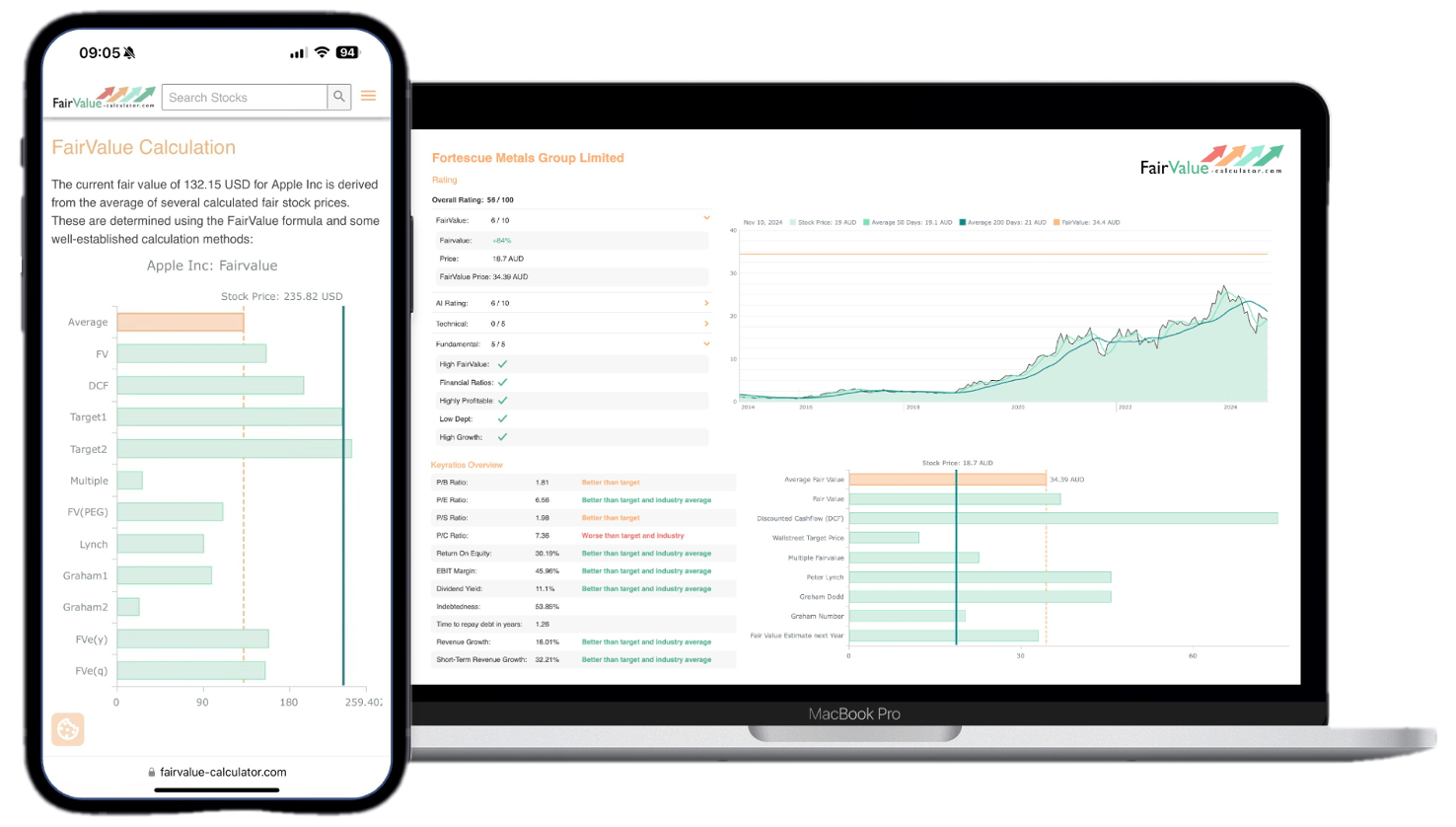Navigating the bustling world of startups and high-growth companies can often feel like sailing through uncharted waters. The journey is exhilarating yet fraught with financial complexities that can make or break a budding enterprise. Among these challenges lies the crucial concept of fair value, an assessment that plays a pivotal role in determining a company’s worth and potential appeal to investors. But unraveling this intricate evaluation isn’t just for the accountants or financial wizards; it’s essential knowledge for any ambitious entrepreneur aiming to scale new heights.
Understanding fair value for startups and high-growth companies can be akin to discovering a secret ingredient in your favorite recipe; it transforms the whole dish. This often misunderstood metric can provide a more accurate picture of your business’s financial health, helping you make informed decisions on funding rounds, acquisitions, and strategic partnerships. So, what does fair value really entail? And how can it be harnessed to propel your startup toward sustainable success? Let’s delve into the intricacies of fair value, finely explained, to unlock the true potential of your venture.

The Significance of Fair Value in Startup Valuation
For any early-stage company, determining the true financial worth is more than a matter of bookkeeping, it’s the cornerstone of strategic growth. Fair value for startups and high-growth companies serves as a realistic gauge of market expectations, incorporating not only tangible assets but also intangible factors such as intellectual property, brand recognition, and the founding team’s expertise. Investors rely on this holistic assessment to allocate capital efficiently, while founders use it to negotiate favorable terms during funding rounds.
Unlike traditional valuation methods that may undervalue growth potential or ignore future prospects, fair value accounts for risk-adjusted cash flows and market comparables. This comprehensive approach ensures that stakeholders, from venture capitalists to strategic partners, have a clear, data-driven perspective on what the business is truly worth. As a result, transparent fair value reporting can boost investor confidence, reduce disputes over equity dilution, and set realistic expectations for future fundraising milestones.
Moreover, fair value ties directly into corporate governance and financial reporting standards. Meeting these rigorous benchmarks not only satisfies regulatory requirements but also protects founders and investors by aligning internal projections with external valuations. Ultimately, a robust understanding of fair value is indispensable for any startup charting a course toward scalable success in today’s competitive landscape.
Methods for Determining Fair Value
Several valuation techniques exist to measure fair value, each offering a distinct perspective on a startup’s financial health. Broadly speaking, practitioners categorize these approaches into three main types: market, income, and cost. Selecting the appropriate method, or a combination thereof, depends on factors such as the company’s maturity, data availability, and industry dynamics.
A well-rounded valuation often synthesizes insights from multiple methods, mitigating the limitations inherent in any single approach. For instance, a tech startup with minimal physical assets might place more weight on the income approach, whereas a capital-intensive firm could lean on cost-based measures. By integrating diverse valuation methodologies, entrepreneurs and investors can derive a balanced estimate of fair value for startups and high-growth companies, enhancing the credibility and defensibility of their conclusions.
In the sections that follow, we’ll explore each of these methods in depth, examining their underlying principles, practical applications, and potential pitfalls. Armed with this knowledge, you’ll be better equipped to choose the right valuation framework and present a compelling financial narrative to stakeholders.
Market Approach: Leveraging Comparable Companies
The market approach anchors valuation in real-world transactions by analyzing metrics from publicly traded firms or recent acquisitions in the same sector. Key multiples, such as price-to-earnings (P/E), enterprise value-to-sales (EV/Sales), and price-to-book (P/B), serve as benchmarks. By identifying peers with similar growth trajectories, geographic footprints, and business models, you can derive valuation multiples that reflect market sentiment.
Startups must exercise caution when selecting comparables. Variations in scale, profitability, and capital structure can distort multiples, leading to over- or underestimation of fair value. Careful normalization of financial statements, adjusting for one-time expenses, outstanding convertible instruments, and non-recurring revenues, is essential to ensure apples-to-apples comparisons. Additionally, market volatility and shifting investor appetite can skew multiples, so practitioners often look at a range of peers and timeframes to mitigate distortion.
Explore our most popular stock fair value calculators to find opportunities where the market price is lower than the true value.
- Peter Lynch Fair Value – Combines growth with valuation using the PEG ratio. A favorite among growth investors.
- Buffett Intrinsic Value Calculator – Based on Warren Buffett’s long-term DCF approach to determine business value.
- Buffett Fair Value Model – Simplified version of his logic with margin of safety baked in.
- Graham & Dodd Fair Value – Uses conservative earnings-based valuation from classic value investing theory.
- Intrinsic vs. Extrinsic Value – Learn the core difference between what a company’s really worth and what others pay.
- Intrinsic Value Calculator – A general tool to estimate the true value of a stock, based on earnings potential.
- Fama-French Model – For advanced users: Quantifies expected return using size, value and market risk.
- Discount Rate Calculator – Helps estimate the proper rate to use in any DCF-based valuation model.
Income Approach: Evaluating Future Cash Flows
The income approach values a business based on expected future cash flows, discounted back to present value using a risk-adjusted discount rate. Common techniques include the discounted cash flow (DCF) model and the residual income model. These frameworks quantify a startup’s intrinsic worth by projecting revenues, expenses, and working capital requirements over a defined forecast period.
Implementing an income approach requires rigorous financial modeling. Entrepreneurs must make informed assumptions about growth rates, customer acquisition costs, and profit margins. Determining the appropriate discount rate, often derived from the weighted average cost of capital (WACC), involves assessing market risk, industry volatility, and the startup’s capital structure. While a well-constructed DCF can capture long-term value drivers, its sensitivity to input assumptions demands transparency and scenario analysis to validate results.
Cost Approach: Assessing Assets and Liabilities
The cost approach estimates fair value by calculating the net replacement cost of a company’s tangible and intangible assets. This method is particularly relevant for capital-intensive startups, such as those in manufacturing or energy, where physical infrastructure represents a significant portion of the balance sheet. By summing the market value of machinery, equipment, real estate, and intellectual property, then subtracting liabilities, you arrive at a baseline valuation.
However, cost-based valuation can understate the potential upside of high-growth companies whose primary value resides in intangible assets like software platforms, proprietary algorithms, and human capital. To address this limitation, practitioners may augment the cost approach with qualitative factors or adjust asset values to reflect reproduction costs. Despite its conservative bias, the cost method offers a straightforward benchmark and can serve as a floor value in negotiations, ensuring that investors are protected against overpayment for unproven future performance.
💡 Discover Powerful Investing Tools
Stop guessing – start investing with confidence. Our Fair Value Stock Calculators help you uncover hidden value in stocks using time-tested methods like Discounted Cash Flow (DCF), Benjamin Graham’s valuation principles, Peter Lynch’s PEG ratio, and our own AI-powered Super Fair Value formula. Designed for clarity, speed, and precision, these tools turn complex valuation models into simple, actionable insights – even for beginners.
Learn More About the Tools →Challenges in Establishing Fair Value for Startups
Determining fair value is inherently more complex for startups and high-growth companies due to the scarcity of historical data, volatile cash flows, and rapidly evolving business models. Startups often operate in emerging markets or create entirely new categories, making it difficult to identify comparable companies or reliable benchmarks. Additionally, intangible assets,such as patents, trademarks, and proprietary software, pose valuation challenges because their ultimate contribution to revenue remains uncertain.
Other obstacles include fluctuating discount rates, changing regulatory landscapes, and the influence of contingent liabilities like outstanding stock options or pending litigation. Subjectivity in forecasting growth and profitability can introduce significant valuation dispersion between different analysts. To mitigate these challenges, startups should maintain meticulous financial records, engage experienced valuation advisors, and conduct frequent scenario analysis to stress-test assumptions.
Implications of Fair Value on Investor Relations
Transparent fair value assessments foster trust and credibility with existing and prospective investors. By presenting well-documented valuations, startups can preempt disputes over equity dilution and set realistic expectations for future fundraising milestones. Fair value for startups and high-growth companies communicates that management is committed to rigorous financial discipline and long-term value creation.
On the flip side, opaque or overly optimistic valuations may erode investor confidence, leading to tougher negotiation terms or funding delays. Regularly updating fair value estimates, especially after major product launches, market expansions, or financing rounds, demonstrates responsiveness to market dynamics and strengthens governance. Ultimately, clear communication of valuation methodology and key assumptions empowers investors to make informed decisions and deepens stakeholder alignment.
Integrating Fair Value in Strategic Decision-Making
Beyond fundraising, fair value insights can guide critical strategic choices, from M&A activities and joint ventures to product roadmap prioritization. By understanding the drivers behind valuation multiples or cash flow projections, management teams can identify value-enhancing initiatives such as cost optimization, customer diversification, or intellectual property development.
Embedding fair value analysis into operational planning promotes data-driven decision-making. For instance, benchmarking your startup against industry peers may reveal acquisition targets that offer accretive growth or complementary technologies. Similarly, stress-testing cash flow scenarios can inform capital allocation decisions, ensuring that R&D investments align with investor return expectations. In this way, fair value becomes not just a reporting exercise but a strategic compass for sustainable growth.
Regulatory Compliance and Fair Value Reporting
Adhering to accounting standards, such as IFRS 13 and ASC 820, is non-negotiable for startups preparing for IPOs or engaging in cross-border transactions. These frameworks define the measurement and disclosure requirements for fair value, mandating transparency around valuation inputs, methods, and sensitivity analyses. Failure to comply with regulatory guidance can result in audit qualifications, restatements, or legal scrutiny, undermining investor trust.
Startups should implement robust internal controls to track valuation assumptions, document methodological changes, and ensure consistency across reporting periods. Collaborating with external auditors and valuation specialists early in the process can streamline compliance and uncover potential gaps before they escalate. By integrating fair value reporting into financial close cycles, high-growth companies can maintain audit readiness and demonstrate accountability to stakeholders worldwide.
Conclusion: Maximizing Growth Opportunities through Fair Value
Fair value for startups and high-growth companies is more than an accounting exercise, it’s a strategic enabler. Accurate valuation informs fundraising, strengthens investor relations, and guides critical business decisions. By leveraging multiple valuation methods and adhering to regulatory standards, startups can present a credible financial narrative that resonates with stakeholders.
Ultimately, integrating fair value into your growth playbook unlocks transparency, drives operational alignment, and positions your company for long-term success. Embrace fair value as a foundational element of your financial strategy, and watch your venture thrive in today’s dynamic market.






